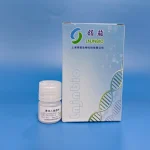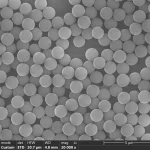Relative Evaluation of the Application of Polystyrene Microspheres and Polystyrene Carboxyl Microspheres in Biotechnology – Focusing on Nucleic Acid Extraction.
(LNJNbio Polystyrene Microspheres)
In the field of modern biotechnology, microsphere products are extensively utilized in the extraction and purification of DNA and RNA because of their high particular surface area, excellent chemical stability and functionalized surface area buildings. Amongst them, polystyrene (PS) microspheres and their derived polystyrene carboxyl (CPS) microspheres are among the two most widely studied and applied materials. This article is supplied with technological assistance and information analysis by Shanghai Lingjun Biotechnology Co., Ltd., aiming to methodically compare the efficiency differences of these two kinds of products in the procedure of nucleic acid extraction, covering vital signs such as their physicochemical residential properties, surface modification capacity, binding efficiency and healing price, and illustrate their applicable situations via experimental data.
Polystyrene microspheres are uniform polymer particles polymerized from styrene monomers with great thermal stability and mechanical toughness. Its surface is a non-polar structure and normally does not have energetic functional groups. Therefore, when it is straight used for nucleic acid binding, it needs to count on electrostatic adsorption or hydrophobic activity for molecular addiction. Polystyrene carboxyl microspheres introduce carboxyl functional teams (– COOH) on the basis of PS microspheres, making their surface area with the ability of more chemical combining. These carboxyl groups can be covalently bound to nucleic acid probes, proteins or other ligands with amino teams via activation systems such as EDC/NHS, thus achieving more steady molecular addiction. For that reason, from an architectural viewpoint, CPS microspheres have extra advantages in functionalization capacity.
Nucleic acid removal normally includes actions such as cell lysis, nucleic acid launch, nucleic acid binding to solid stage providers, washing to eliminate pollutants and eluting target nucleic acids. In this system, microspheres play a core function as solid phase service providers. PS microspheres generally rely on electrostatic adsorption and hydrogen bonding to bind nucleic acids, and their binding performance is about 60 ~ 70%, but the elution effectiveness is low, only 40 ~ 50%. In contrast, CPS microspheres can not only make use of electrostatic effects however also accomplish more strong addiction through covalent bonding, lowering the loss of nucleic acids during the washing procedure. Its binding performance can get to 85 ~ 95%, and the elution efficiency is additionally enhanced to 70 ~ 80%. Additionally, CPS microspheres are additionally considerably far better than PS microspheres in regards to anti-interference capability and reusability.
In order to confirm the performance differences between the two microspheres in real procedure, Shanghai Lingjun Biotechnology Co., Ltd. conducted RNA removal experiments. The speculative samples were derived from HEK293 cells. After pretreatment with conventional Tris-HCl barrier and proteinase K, 5 mg/mL PS and CPS microspheres were utilized for extraction. The results showed that the average RNA yield extracted by PS microspheres was 85 ng/ μL, the A260/A280 proportion was 1.82, and the RIN worth was 7.2, while the RNA return of CPS microspheres was increased to 132 ng/ μL, the A260/A280 ratio was close to the optimal worth of 1.91, and the RIN value got to 8.1. Although the procedure time of CPS microspheres is slightly longer (28 minutes vs. 25 minutes) and the expense is greater (28 yuan vs. 18 yuan/time), its extraction high quality is dramatically enhanced, and it is preferable for high-sensitivity discovery, such as qPCR and RNA-seq.
( SEM of LNJNbio Polystyrene Microspheres)
From the point of view of application circumstances, PS microspheres appropriate for massive screening projects and preliminary enrichment with reduced demands for binding specificity as a result of their inexpensive and basic operation. Nonetheless, their nucleic acid binding capability is weak and quickly affected by salt ion focus, making them inappropriate for long-term storage or repeated usage. In contrast, CPS microspheres are suitable for trace sample extraction due to their abundant surface practical groups, which help with further functionalization and can be utilized to construct magnetic grain detection sets and automated nucleic acid extraction systems. Although its preparation procedure is relatively complicated and the cost is fairly high, it reveals stronger versatility in clinical research study and medical applications with stringent requirements on nucleic acid extraction efficiency and purity.
With the rapid growth of molecular medical diagnosis, genetics modifying, liquid biopsy and other fields, greater needs are put on the performance, pureness and automation of nucleic acid extraction. Polystyrene carboxyl microspheres are progressively replacing typical PS microspheres as a result of their exceptional binding efficiency and functionalizable qualities, ending up being the core selection of a new generation of nucleic acid extraction products. Shanghai Lingjun Biotechnology Co., Ltd. is additionally continuously enhancing the particle size distribution, surface thickness and functionalization efficiency of CPS microspheres and developing matching magnetic composite microsphere items to fulfill the requirements of clinical diagnosis, scientific research organizations and industrial clients for high-grade nucleic acid removal options.
Vendor
Our products are widely used in many fields, such as medical testing, genetic testing, university research, genetic breeding and more. We not only provide products but can also undertake OEM, ODM, and other needs. If you need dna extraction kit, please feel free to contact us at sales01@lingjunbio.com.
All articles and pictures are from the Internet. If there are any copyright issues, please contact us in time to delete.
Inquiry us

